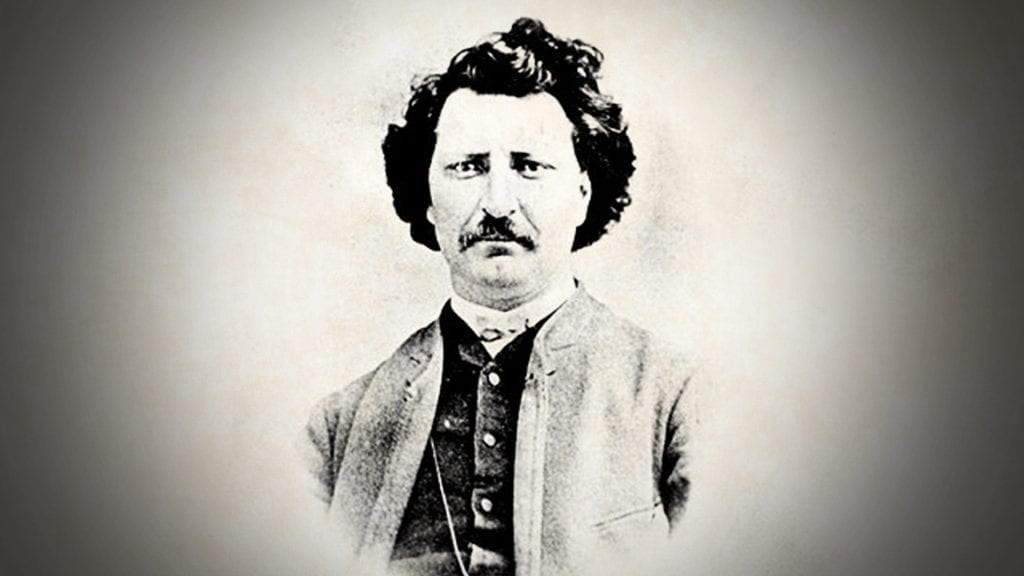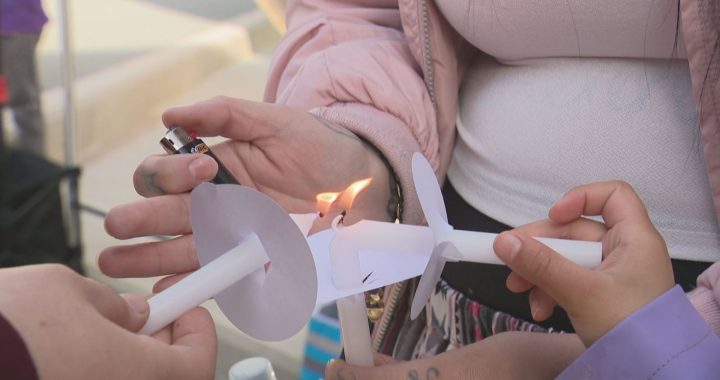
Louis Riel
Just shy of a landmark anniversary of the execution of Métis leader Louis Riel, a national coalition is joining forces to demand the federal government formally – and publicly – exonerate him.
Riel lead the Métis people in the Northwest Resistance, and was found guilty of treason in 1885 after a five-day trial in Regina.
The jury of six recommended mercy. but the presiding judge at the time ordered Riel’s execution by hanging.
Marvin Rotrand, Montreal’s longest-serving city councilor, is spearheading this most recent push for a pardon.
He says Quebecers have campaigned on behalf of Riel for years.
“This is not the first time that Montreal, or Montreal councilors, are concerned about Louis Riel and the Métis,” Rotrand said during a virtual press conference.
“It’s not very well known, but in 1885, one week after the execution of Louis Riel, when Montrealers heard about this, 55,000 people gathered at Champ de Mars to hear Honore-Mercier, the Premier of Quebec, decry this injustice and defend minority rights, including the rights of the Métis.”
Watch Montreal city councilor Marvin Rotrand speaks during virtual press conference.
While serving as an MP in the late 1990s, former Montreal Mayor Denis Coderre introduced Bill C-417, “An Act respecting Louis Riel,” in hopes of exonerating him.
In the end, Parliament did not pass the bill.
“There have been many private members’ bills since,” Rotrand explains, listing off about five. “None have ever gotten to the level of a vote. There’s always been a blockage somewhere.”
“And that is why we’re here today, asking minister Miller, minister Bennett, and the government of Canada to act. Preferably by November 16th, which is the 135th anniversary,” he added.
The newly-formed coalition, announced Monday, brings together Métis and municipal leaders with Canadian senators, civil libertarians, and historians.
Among the participants is the Union Nationale Métisse Saint-Joseph du Manitoba, which called for Riel’s exoneration in 2017, during the 150th anniversary of confederation.
Paulette Duguay, president of the organization, recently wrote directly to Indigenous Services Minister Marc Miller – also the MP for Montreal’s Ville Marie borough – asking for a formal declaration of Riel’s innocence.
She says she hopes the upcoming milestone anniversary will serve as a “healing moment” for all Canadians.
“The death of Louis Riel is the source of deep division in Canadian society and has led to a profound sense of injustice among the Métis people which still echoes today,” Duguay said.
“We talk a lot about reconciliation, but for the Métis people, it feels like it hasn’t gone anywhere. It feels like it’s stalled. Like there’s nothing tangible,” explained Keith Henry, President of the British Columbia Métis Federation.
“So our work and our opinion – and I’m only one voice – but we believe very strongly in pushing to exonerate Louis Riel because it was an injustice,” he added. “The fact remains that Louis Riel was hung using a 500-year-old law that had really no relevance in Canada.”
Verna George with the Canadian Civil Liberties association says Riel’s life and death is emblematic of the struggles against cultural genocide and the ongoing struggle for reconciliation.
“If Louis Riel committed treason, then I confess to do the same,” George said Monday. “Both of us, Indigenous, dare to fight for the promises made and broken by Canada.”
Métis historians Terry and George Goulet said the Canadian government’s 2018 exoneration of six Tsilhqot’in war chiefs for wrongdoing during the Chilcotin War of 1864 should allow them to act up upon the demand to declare Riel innocent.
“Canada recognizes that these six chiefs were leaders of a nation, that they acted in accordance with their laws and traditions and are regarded as heroes of their people,” George Goulet said via press release.
“Today, under Canadian law, Riel is a convicted criminal traitor. In the interests of reconciliation with the Métis People, this stain must not remain, and Riel must be exonerated,” Terry Goulet added in a statement.
Altogether, the group shares the belief that Canada has to alter its Riel-related narrative and better acknowledge his historical contributions.
“The Manitoba Act, which incorporated the demands of the Métis, had a profound impact on what Canada would become: a country that, at least on paper, is committed to minority rights, a duality of languages – the official languages of English and French – [and] respect for religion, whether it’s Protestant, Catholic, or anything else,” Rotrand said.
Rotrand says a motion in support of this demand will be presented at Montreal City Council on that date.
“[Riel’s] work built a Canada where minority rights mean something,” he added.









